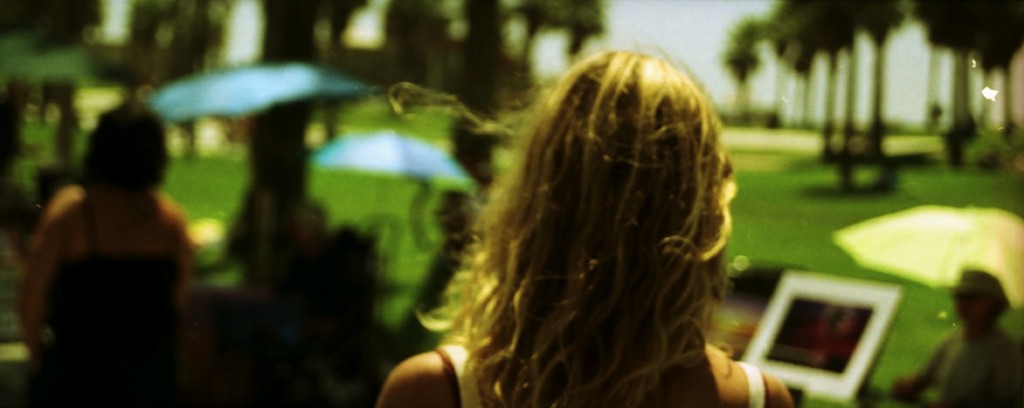
I’m doing lunges at Henderson, down and up the inside of the coach, when a girl in sweats and horizontal zebra stripes comes forward, tentatively peeking in with her two dogs. My door is open.
“Hi,” I say.
“HIIIIII!,” I say again, recognizing that late-teen face–it’s Celia. She used to ride the 4. We catch up on the sidewalk outside. I tell her about my shows and book, I ask about her time in California (“that was a long time ago!,” she says), and how she’s back here now with a close friend with whom she traveled with.
Blue eyes can have a way of lasering right through you. Hers pierce with a self-reliance emblematic of the heady youthful energy best captured in Walt Whitman’s Pioneers! O, Pioneers!, that burgeoning self-assurance which settles in after the teenage years wind down, when confidence relaxes into something more balanced. The need to prove oneself isn’t so predominant anymore.
Celia’s always been way ahead of that whole game, though. Her gaze contains a carefree kindness that’s uniquely her own. We stand in the late afternoon light, grocery store lot in front of us and soccer field behind. She speaks passionately about the proposed new youth jail, an expensive Orwellian monstrosity more concerned with containing problems than solving them. She talks about a grassroots “No New Jail” movement, meetings, and how doubling the size and upping the ante are not the solution.
Standing there I’m taken by her ardor. The pervasive fashion of “coolness” has so much to do with irony, with apathy and uncaring. The cool thing is to lean back on the chairs in the back of the classroom not knowing the answers to the questions. The cool thing is to pretend you don’t have feelings, to traffic in the peak of fake, always with that guard up, impenetrable. The Wall.
I’ve said this before, but I think it’s worth repeating: that’s easy. The Wall bores me. I say, dare to open yourself up to hurt and love, and explore the uncharted in life. Be bold enough to take that guard down, and let yourself really feel something. Venture as we go the unknown ways, as Whitman wrote. Standing there listening to Celia speak with focus and passion, I’m struck by how comfortable with herself she is. There is no wall. Her eyes are full, alive, watching you, learning about the world with each passing minute. I aspire for that. Here is a young person who cares.
Her dogs tug at the leash, barking at a high pitch intermittently. The sun is hidden but nearby, somewhere over there behind the buildings. I feel deeply satisfied, and afterwards I realize it’s because she, and the other great young people I know, represent the possibilities of the open future. It is not all impending doom. When something is new and good, and here to stay, you feel a tremendous weight lifted. We know there was always strife in the world, but there has also always been goodness. Neither is going anywhere.
* * * * *
Here’s the Whitman poem in full.
Don’t have time to read it? Check out this Levi’s ad, which admirably interprets the energy of the opening lines.
Nathan Vass is an artist, filmmaker, photographer, and author by day, and a Metro bus driver by night, where his community-building work has been showcased on TED, NPR, The Seattle Times, KING 5 and landed him a spot on Seattle Magazine’s 2018 list of the 35 Most Influential People in Seattle. He has shown in over forty photography shows is also the director of nine films, six of which have shown at festivals, and one of which premiered at Henry Art Gallery. His book, The Lines That Make Us, is a Seattle bestseller and 2019 WA State Book Awards finalist.


